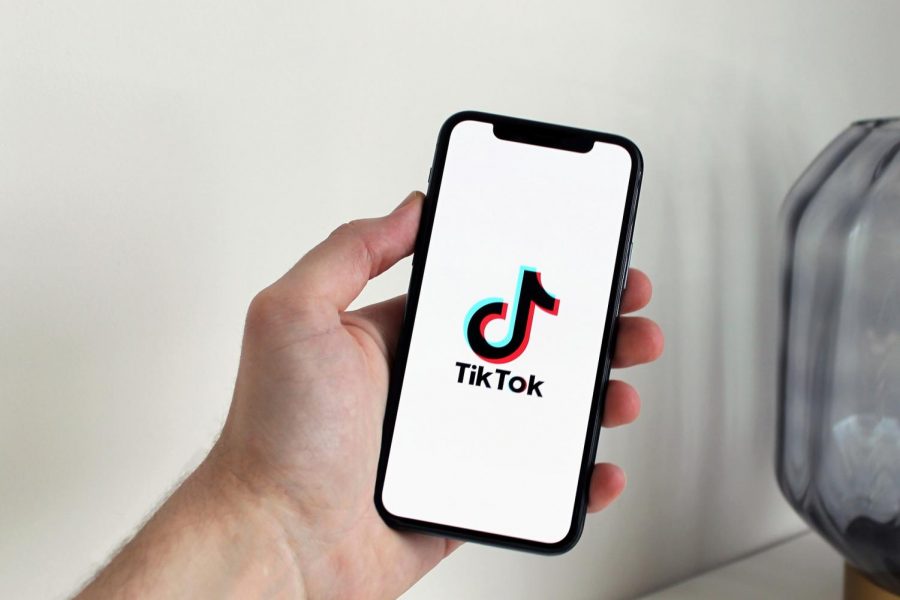Enough is enough, give Black TikTok creators the recognition they deserve
April 15, 2021
The fact that white TikTok creators have become the face of dances created by Black TikTok creators speaks to a larger issue at hand, which is that time and time again, Black talent is used for profit by the privileged.
Black TikTok creators have long called for credit and recognition for the viral TikTok dances they’ve invented. It’s time that Black content creators receive the same fame and glory that those who use their dances obtain.
This conversation recently gained more attention after TikTok creator Addison Rae was invited on The Tonight Show to perform her new song “Obsessed,” and to be in a skit where she “taught” host Jimmy Fallon viral TikTok dances.
Eight viral TikTok dances, none created by Rae, were featured in the skit including the viral dance to “Up” by Cardi B, which was created by 15-year-old Mya Johnson and 13-year-old Chris Cotter.
Johnson expressed in an interview with PopSugar how excited she was to see the dance she created with Cotter featured on the show, but wished she got the chance to perform it instead.
“My mom always tells me, ‘When it’s my time, it’s my time.’ I felt like that should’ve been my time and Chris’s time, because we created the dance,” Johnson said to PopSugar.
Following the backlash that he and Rae received for the skit, Fallon invited the creators of the viral dances to the show to talk about how they came up with the dance and perform it themselves.
“On our last show before break, we did a bit with Addison Rae where she taught me eight viral TikTok dances, and we recognize that the creators of those dances deserve to have their own spotlight,” Fallon said before introducing the creators.
Fallon did well by acknowledging what he did and bringing the TikTok dance creators on the show, but the fact that it had to be done in the first place is what’s wrong.
It’s normalized for white TikTok creators to take the recognition and credit away from Black TikTok creators and benefiting from it.
Just last year, The New York Times wrote an article on Jalaiah Harmon who created the super-viral “Renegade” dance, which she never got credit for creating while other TikTok creators received millions of views doing her dance.
Harmon was robbed of receiving recognition for the dance that took over TikTok in early 2020 and, instead, white TikTok creators like Charli D’Amelio and Rae rose to fame from it.
Of course, it’s fine for white TikTok creators to do a dance. However, credit and recognition must be given to the dance creator because when new opportunities unveil, it is unfair that TikTokers other than the original creators capitalize on their stardom moment.
“I think I could have gotten money for it, promos for it, I could have gotten famous off it, get noticed,” Harmon said to The New York Times. “I don’t think any of that stuff has happened for me because no one knows I made the dance.”
TikTok is a social media app that, just like Instagram, YouTube and Twitter, can land millions of eyes on a content creator’s page.
The impact that TikTok has on people’s career is evident. Just take a look at D’Amelio who, according to Forbes, is the second highest-earning TikTok creator, gaining $4 million and receiving brand deals with Dunkin’ Donuts and makeup brand Morphe 2.
Moving forward, individuals like Fallon and Rae have to be held accountable for continuing this unfair trend that bars Black content creators from gaining the attention they deserve for their creativity.
Engaging in conversations about who is pushed aside on social media platforms and following Black content creators is a part of breaking the trend as well.
Every TikTok user should give a dance credit or an inspiration credit in the caption, comments or somewhere on the video itself when uploading a TikTok with a dance routine that they did not initially create.
Without a credit or nod to the original dance creator, anyone who lands on the video then believes that TikTok creator as the creator of the dance when they are not.
This is how the dance credit mystery begins. So, the more people give dance credit, the fewer Black dance creators are left in the dark.
“This isn’t the first time this has happened and I don’t want it to continue,” Johnson said to PopSugar. “I feel like it is very important for us to get our credit because we are very good creators that are very overlooked in what we do.”







